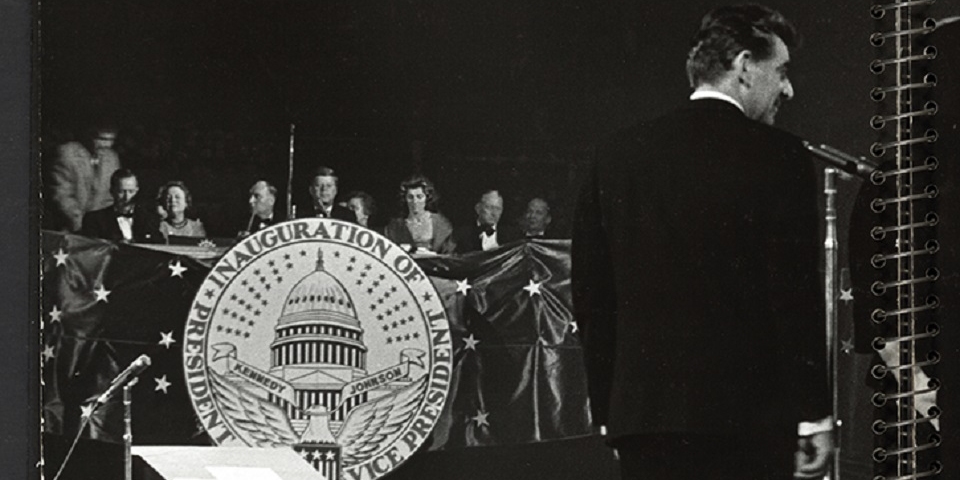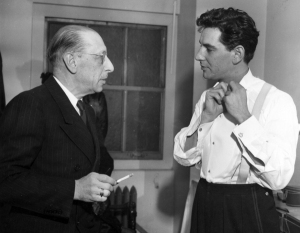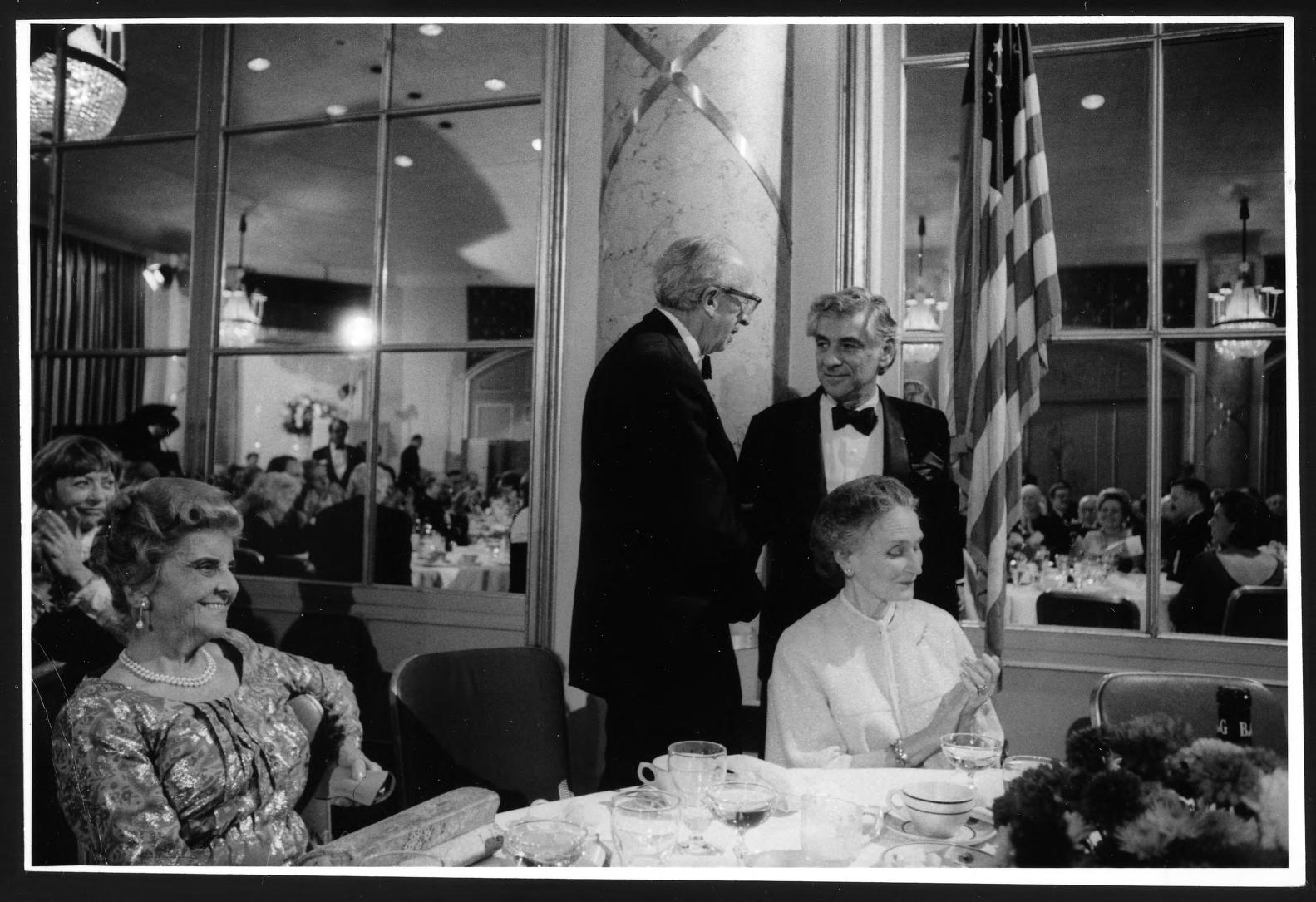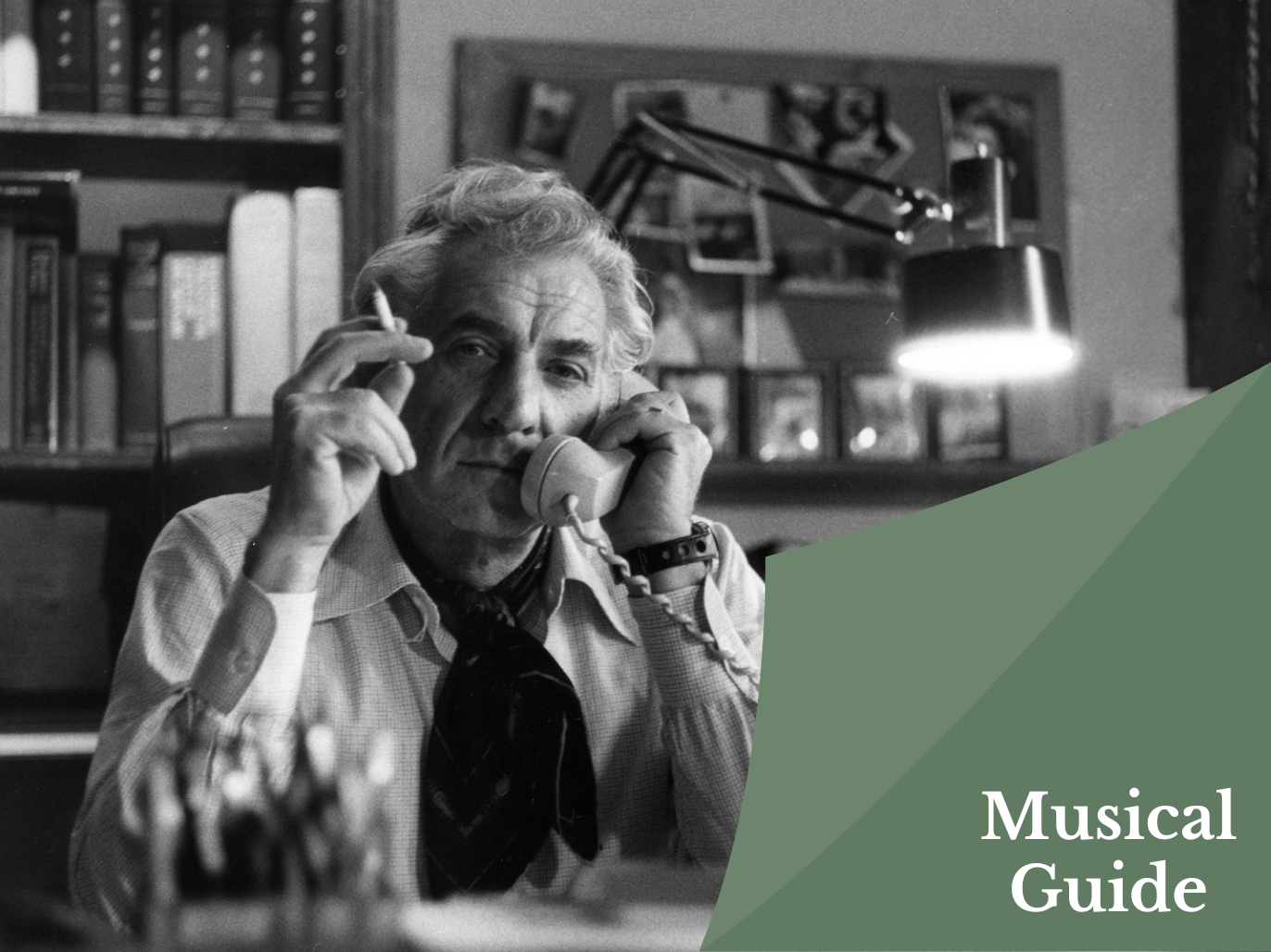A central figure of the New York scene during much of the twentieth century, Leonard Bernstein led a truly fascinating life. A known charmer with a passion for entertaining, he was often the life of any party he attended. What better way to celebrate the magnetic maestro than a list of fun facts to whip out at your next dinner party?
View author's page
Reading time estimated : 7 min
1. He was a close friend of the Kennedy family
Bernstein performed at John F. Kennedy’s Presidential Inauguration in 1961, and two years later dedicated his third symphony to him, just weeks after his shocking assassination.
When Bernstein was later called upon to oversee some of the music for Robert Kennedy’s funeral, he selected the moving Adagietto from Mahler’s Symphony No. 5. Jackie Kennedy wrote, “I thought it the most beautiful music I had ever heard… I am so glad I didn’t know it—it was this strange music of all the gods who were crying.”

Watch Claudio Abbado conducts Mahler’s Symphony No. 5
2. His original name was actually Louis
Allegedly a name close to his grandmother’s heart, it seems that everyone else called him Lenny or Leonard from a very young age. By the time he was a teenager, he felt the name “Louis” didn’t suit him, so he officially changed it to Leonard.
3. He was deeply engaged in politics and believed fervently in music’s ability to bring people together and overcome obstacles
From conducting Beethoven’s iconic Symphony No. 9 to commemorate the fall of the Berlin Wall in 1989 to performing in the Soviet Union at the height of the Cold War, Bernstein acted as a kind of musical diplomat around the globe:
Leonard Bernstein with the New York Philharmonic in Moscow in 1959 before an audience which included composer Dmitri Shostakovich and the dissident poet Boris Pasternak.
“This will be our reply to violence: to make music more intensely, more beautifully, more devotedly than ever before.” —Leonard Bernstein
4. Bernstein’s political activities landed him on the FBI’s radar
As Alex Ross has covered in The New Yorker, the FBI had an eight-hundred-page dossier on the composer classifying him as a communist; documenting the fundraising party the Bernsteins hosted for the Black Panther Party in 1970; and detailing their concerns that the forthcoming premiere of Mass at the opening of the Kennedy Center was, in fact, a plot to “embarrass the United States government” through an “anti-war and anti-musical composition”…
5. He shared the small screen with Stravinsky
Many know that Bernstein was a huge fan of Stravinsky‘s, calling him “the last great father-figure of Western music.” But did you know that Bernstein played a role in Stravinsky’s American TV debut? In 1960, by then a seasoned television personality, Bernstein had the opportunity to introduce the Russian composer to the American public on his CBS program “The Creative Performer.” (Bonus fun fact: Canadian pianist Glenn Gould made his American TV debut on the same program!)

6. He was the first American to conduct an opera at Milan’s legendary Teatro alla Scala.
In 1953, Bernstein took the podium for a production of Medea by Cherubini, starring none other than Maria Callas. The performance was a landmark moment: La Scala, one of the most prestigious opera houses in the world, had until then resisted inviting American conductors. Bernstein’s electrifying debut broke that barrier, showcasing not only his mastery of opera but also his ability to match the intensity of the great diva herself.
7. He thought of Aaron Copland as his “surrogate father”
When we think of Leonard Bernstein’s strongest influences, our minds often go straight to Serge Koussevitsky, his teacher at Tanglewood. Yet, he also counted fellow American composer Aaron Copland among his mentors. In 1970, Bernstein wrote a touching tribute to him in High Fidelity/Musical America magazine:
“During those years, I was also very much concerned about my own future and I’d bring all my problems to Aaron. He became a surrogate father to me. I was quite a whiner in those days and I would constantly bewail my plight to him: “When is anybody ever going to play my music?” or, in later years. “Oh Lord, how does anybody ever get to conduct an orchestra?” He would always giggle first–the infectious giggle is his most common reaction to anything–then, with an attempt at sternness, glower. “Stop complaining. You are destined for success. Nobody’s worried about you. You are the one person worried about you,” and I would get very angry and insist upon being worried about.”
Their friendship even came with musical jokes: Copland’s notoriously difficult Piano Variations was something of a party trick for Bernstein, who called it “hard as nails” and claimed it would “empty the room, guaranteed, in two minutes.”

8. Steven Sondheim, who collaborated with Bernstein on West Side Story, was more than a simple colleague: he visited the Bernstein summer home on Martha’s Vineyard every year.
As Bernstein’s daughter Jamie remembered in her memoir Famous Father Girl, Sondheim directed some of the family home movies and even wrote Bernstein a special song for his 40th birthday that included the cutting line, “You’re only as old as you look—and you look… forty.”
9. He had intense faith in the abilities of the orchestras he conducted—and in his ability to lead them in perhaps unconventional ways…
In the now-legendary opening of one of the episodes of his Omnibus television series, he even walked away from the orchestra he was conducting to address the audience directly: “You see? They don’t need me. They do just fine without me.” In another now-legendary moment of Bernstein lore, he conducted the fourth movement of a Haydn symphony using just his eyes…
Watch Bernstein conduct with just his eyes!
From intimate friendships to political battles, from TV stardom to musical firsts, these 9 stories remind us why Leonard Bernstein remains one of the most unforgettable figures in music history.

